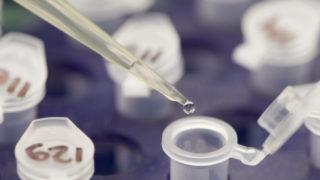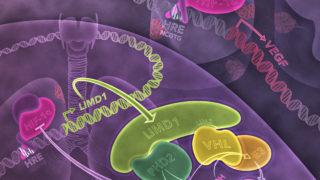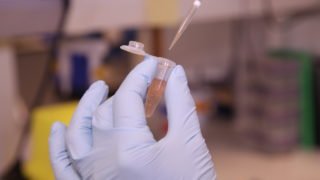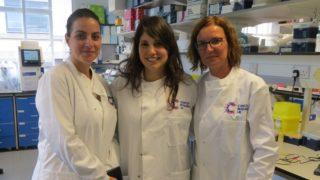Latest News
Search News
Categories
Archives
‘Chromosomal Catastrophes’ in Colorectal Cancer
5th September 2018
Understanding how cancers develop and change over time is a big challenge. For obvious reasons, scientists can’t simply sit and watch a cancer growing in a person. Members of the Evolution and Cancer Laboratory at the BCI, including lead author Dr William Cross, were part of a collaborative team that set out to identify when particular genetic changes arise during bowel cancer development.
Read moreSNPnexus: Assessing the impact of genetic variation
30th August 2018
A team of researchers from BCI’s Centre for Molecular Oncology, led by Prof Claude Chelala, have made new developments to SNPnexus- a computational tool that allows for the assessment of the functional effect of sequence variants within the genome.
Read moreResearchers identify new mechanism implicated in lung cancer progression
7th August 2018
A new study performed by researchers from BCI led by Dr Tyson Sharp, Lead of the Centre for Molecular Oncology, has identified a novel mechanism implicated in the development of lung adenocarcinoma (the most common type of non-small cell lung cancer), mediated by the loss of a gene called LIMD1.
Read morePancreatic Cancer UK Grand Challenge
27th July 2018
Our Director, Prof Nicholas Lemoine, and a team of researchers from the BCI and King’s College London have been awarded the Pancreatic Cancer UK (PCUK) Grand Challenge- PCUK’s largest ever research fund. The grant will be […]
Read moreCRUK Gibraltar Committee visit the BCI
18th July 2018
We were recently visited by two members of the CRUK Gibraltar Committee, Giovi and Deborah, who came to the BCI for a laboratory tour with Dr Ana Rio-Machin, a postdoctoral researcher in the Centre for Haemato-Oncology. Ana’s research focuses on leukaemia, a type of blood cancer in which patients present an abnormal growth of white blood cells.
Read moreUncovering the evolutionary history of IBD-associated colorectal cancer
11th July 2018
A team of researchers from the BCI, led by Prof Trevor Graham, Lead of the Evolution and Cancer Biology Laboratory, have reported the genetic events involved in the early development of bowel cancer in patients with inflammatory bowel disease (IBD). Such knowledge may be able to be exploited to design simple diagnostic tests to stratify patients with IBD at high risk of developing cancer.
Read more





